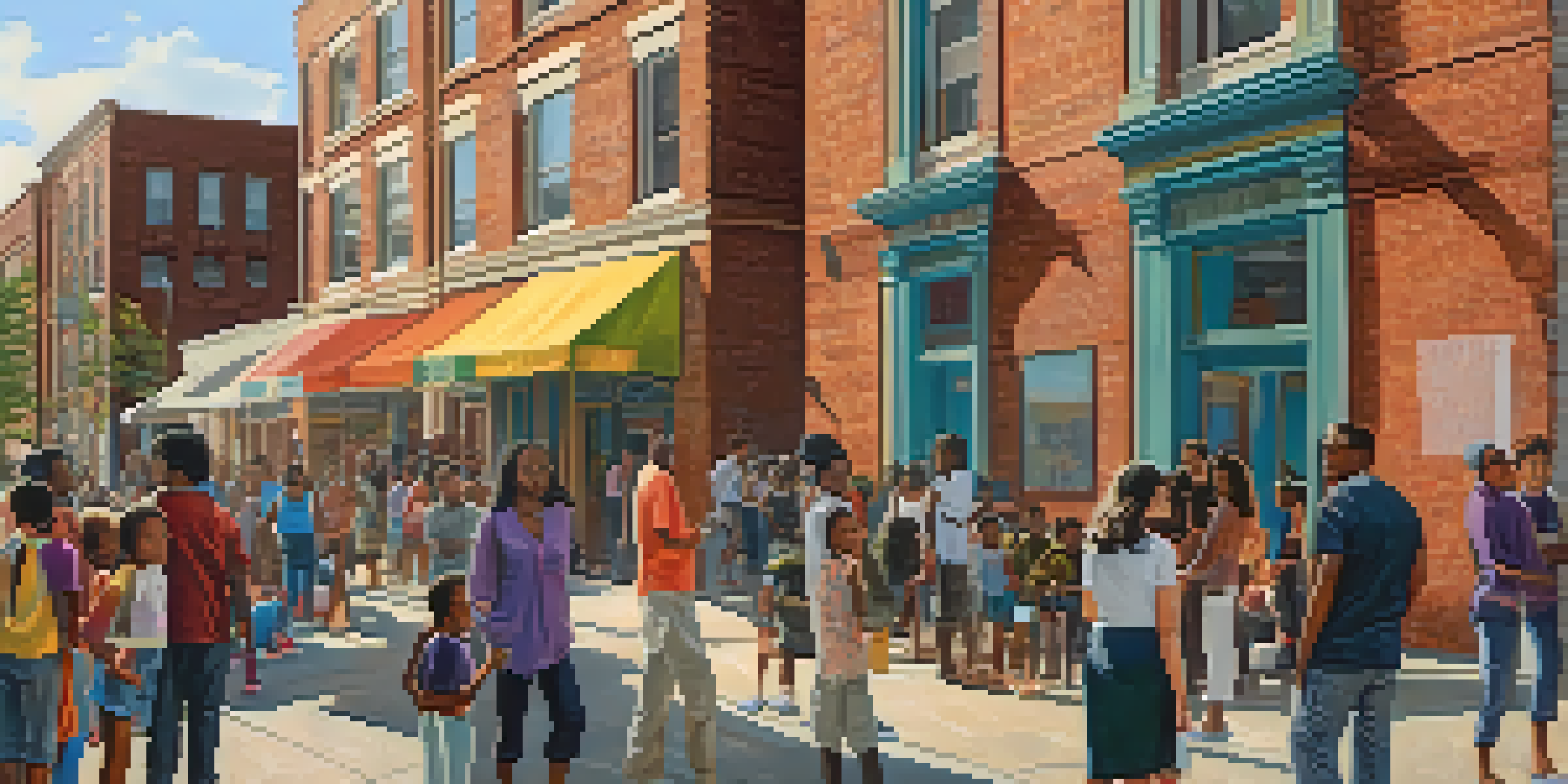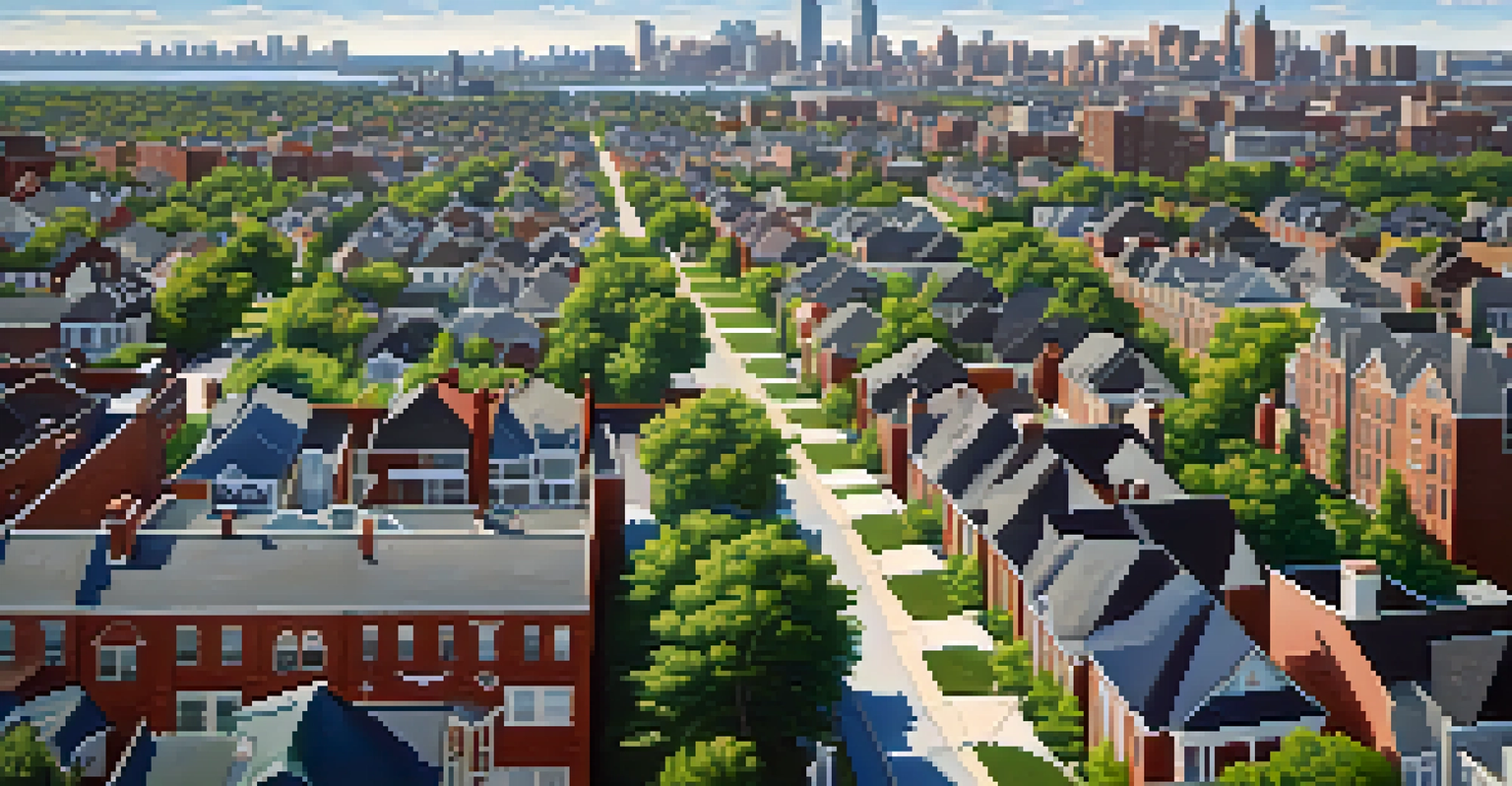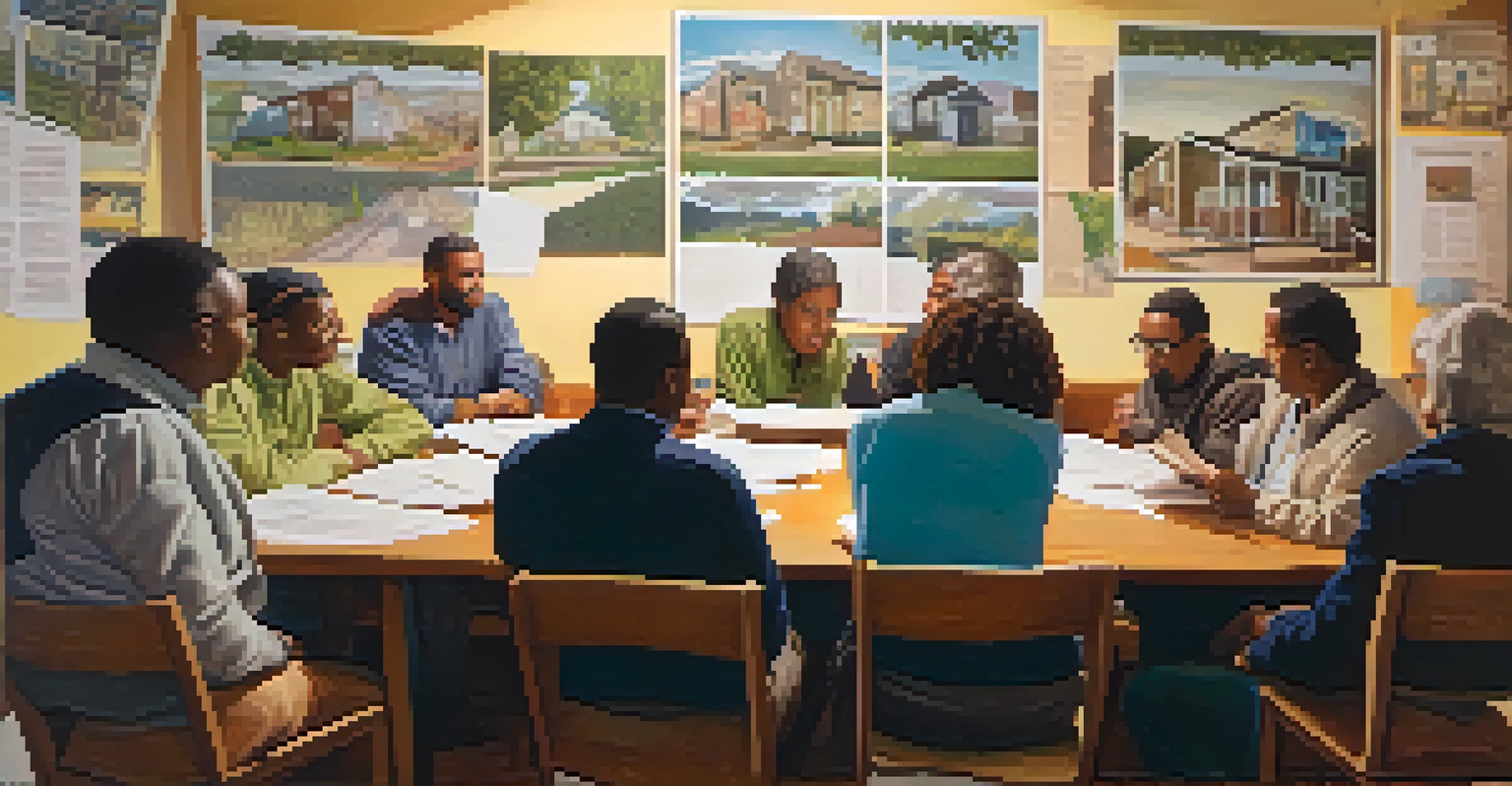Affordable Housing Crisis Amidst Newark's Gentrification

Understanding the Affordable Housing Crisis in Newark
Newark has been experiencing a significant affordable housing crisis, where the demand for affordable living options far exceeds the supply. This issue affects many residents, especially low-income families who struggle to find housing that fits their budgets. As rental prices continue to rise, many are forced to choose between paying for housing or meeting other essential needs.
Housing is absolutely essential to human flourishing. Without stable housing, the ability to thrive in other areas is diminished.
The crisis is compounded by various factors, including job displacement and stagnant wages. Many Newark residents find themselves in a precarious situation where their income does not keep pace with rising housing costs. This has led to increased homelessness and housing insecurity in the city, highlighting the urgent need for effective solutions.
In the face of this growing crisis, it's essential to understand the underlying causes. Factors such as urban development, changes in city policies, and economic shifts play a significant role in shaping the affordable housing landscape in Newark.
The Impact of Gentrification on Housing Affordability
Gentrification is transforming Newark's neighborhoods, often bringing new businesses and investments, but it also leads to rising property values. While this may seem beneficial at first glance, many long-time residents find themselves pushed out of their own communities. The influx of wealthier individuals can lead to increased rents and property taxes, making it harder for existing residents to afford their homes.

As neighborhoods gentrify, the cultural fabric of the community can change dramatically. Long-standing local businesses may close, replaced by upscale shops that cater to newcomers. This shift can alienate long-time residents, who may feel that their voices and needs are being overlooked in favor of new developments.
Affordable Housing Crisis in Newark
Newark faces a severe affordable housing crisis, with rising rental prices forcing low-income families to make tough choices between housing and basic needs.
Ultimately, gentrification can create a cycle of displacement that exacerbates the affordable housing crisis. As more residents are pushed out, the city risks losing its diversity and character, which are vital to its identity.
The Role of Local Government in Addressing Housing Needs
Local government plays a crucial role in tackling the affordable housing crisis in Newark. By implementing policies that prioritize low-income housing development, officials can help ensure that all residents have access to safe and affordable living conditions. Strategies such as rent control and inclusionary zoning can help mitigate the effects of gentrification and protect vulnerable populations.
The greatest challenge of the 21st century is not only ensuring everyone has a place to live but that it is a place where they can feel at home.
Moreover, local government can collaborate with non-profit organizations and community groups to create programs aimed at preserving existing affordable housing. These partnerships can lead to innovative solutions that not only address immediate housing needs but also foster community engagement and empowerment.
In order to make a lasting impact, local officials must prioritize transparency and community input in their decision-making processes. Engaging residents in conversations about housing needs and solutions can lead to more effective policies that truly reflect the community's priorities.
Community Initiatives Supporting Affordable Housing
In response to the affordable housing crisis, several community initiatives have emerged in Newark. Non-profit organizations, grassroots movements, and local residents are coming together to advocate for affordable housing solutions. These initiatives often focus on educating community members about their rights and available resources, empowering them to take action.
One example is the development of community land trusts, which enable residents to collectively own and manage land for affordable housing. This model promotes long-term affordability and community control, allowing residents to maintain their homes without the fear of displacement due to rising property values.
Gentrification Displaces Residents
Gentrification in Newark leads to increased property values and rents, pushing long-time residents out of their neighborhoods and altering the community's cultural fabric.
Additionally, community-driven development projects that prioritize local needs can help create sustainable and affordable housing options. By involving residents in the planning process, these initiatives can foster a sense of ownership and pride, ultimately leading to more resilient neighborhoods.
The Importance of Affordable Housing Policies
Affordable housing policies are vital in addressing the challenges faced by Newark residents. Policies that provide funding for low-income housing developments can create more opportunities for families to secure stable homes. Furthermore, these policies can help prevent displacement and maintain community cohesion in gentrifying neighborhoods.
Effective policies should also consider the diverse needs of the community, including families, seniors, and individuals with disabilities. By tailoring housing solutions to meet these specific needs, local governments can ensure that all residents have access to safe and affordable living environments.
Moreover, consistent evaluation and revision of housing policies are necessary to adapt to changing circumstances. Engaging with community members to gather feedback can help policymakers understand the real impact of their initiatives and make adjustments as needed.
The Role of Advocacy Groups in Housing Issues
Advocacy groups play a significant role in raising awareness about the affordable housing crisis in Newark. These organizations work tirelessly to inform the public about the challenges faced by residents and push for meaningful policy changes. By mobilizing community members, they can amplify their voices and demand action from local leaders.
Additionally, advocacy groups often provide resources and support for individuals facing housing insecurity. This can include legal assistance, financial counseling, and access to affordable housing listings. By equipping residents with the tools they need, these organizations empower them to navigate the complex housing landscape.
Community Initiatives Drive Solutions
Local community initiatives, including land trusts and grassroots movements, are empowering residents and promoting sustainable, affordable housing options in Newark.
The collaboration between advocacy groups, residents, and local governments can create a more robust response to the affordable housing crisis. Together, they can develop comprehensive strategies that address the root causes of housing insecurity while promoting inclusive and equitable communities.
Looking Ahead: Solutions for Newark's Housing Crisis
As Newark continues to grapple with the affordable housing crisis, innovative solutions are crucial for the future. This may involve a combination of government policies, community initiatives, and private sector involvement to create a multifaceted approach to housing affordability. By leveraging resources and expertise from various sectors, Newark can develop a more sustainable housing strategy.
One potential solution is increasing the availability of affordable housing through public-private partnerships. Collaborations between the city and developers can lead to the creation of mixed-income housing projects that benefit both low-income and middle-class families. This approach not only addresses the immediate need for affordable units but also fosters diverse communities.

Ultimately, a long-term commitment to affordable housing is essential to ensure that all Newark residents can thrive. By prioritizing inclusive policies and community engagement, Newark can navigate its gentrification challenges while preserving its rich cultural heritage and supporting its residents.